Increased parental confidence
After engaging with the game, parents' confidence in discussing childhood sexual abuse prevention topics with their children improved significantly, from 3.56 (neutral) to 4.9 (confident) out of 10.
HappyToto is a mobile-based digital game designed to provide culturally sensitive childhood sexual abuse prevention education for children aged 3 to 5 in Tanzania.
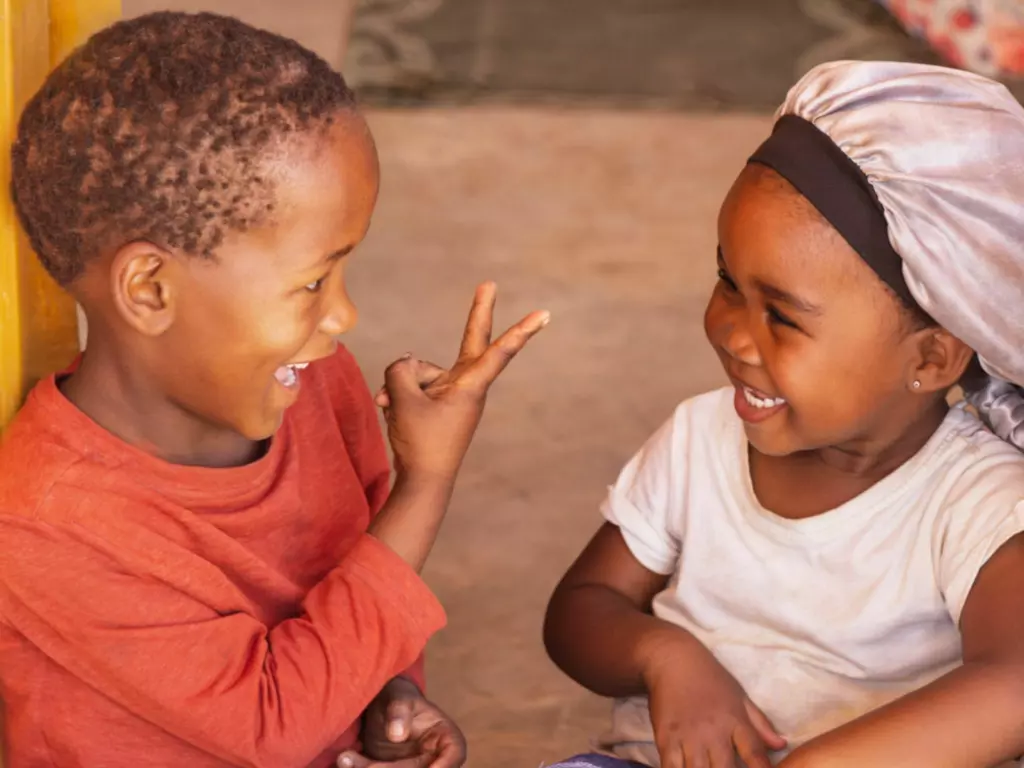
Innovative, stand-alone media and technology-assisted approaches can educate and inform both children and adults, shifting attitudes and motivating behavioral change. These approaches may include television shows, radio dramas, visual and interactive materials, digital games, mobile application-based interactive activities, and social media campaigns.
Effectiveness of intervention type |
Needs more evidence |
|
INSPIRE Pillar |
Norms and values |
|
Evidence type |
Minimal pre-post design. Formative evaluation to assess the usability and acceptability of the intervention. |
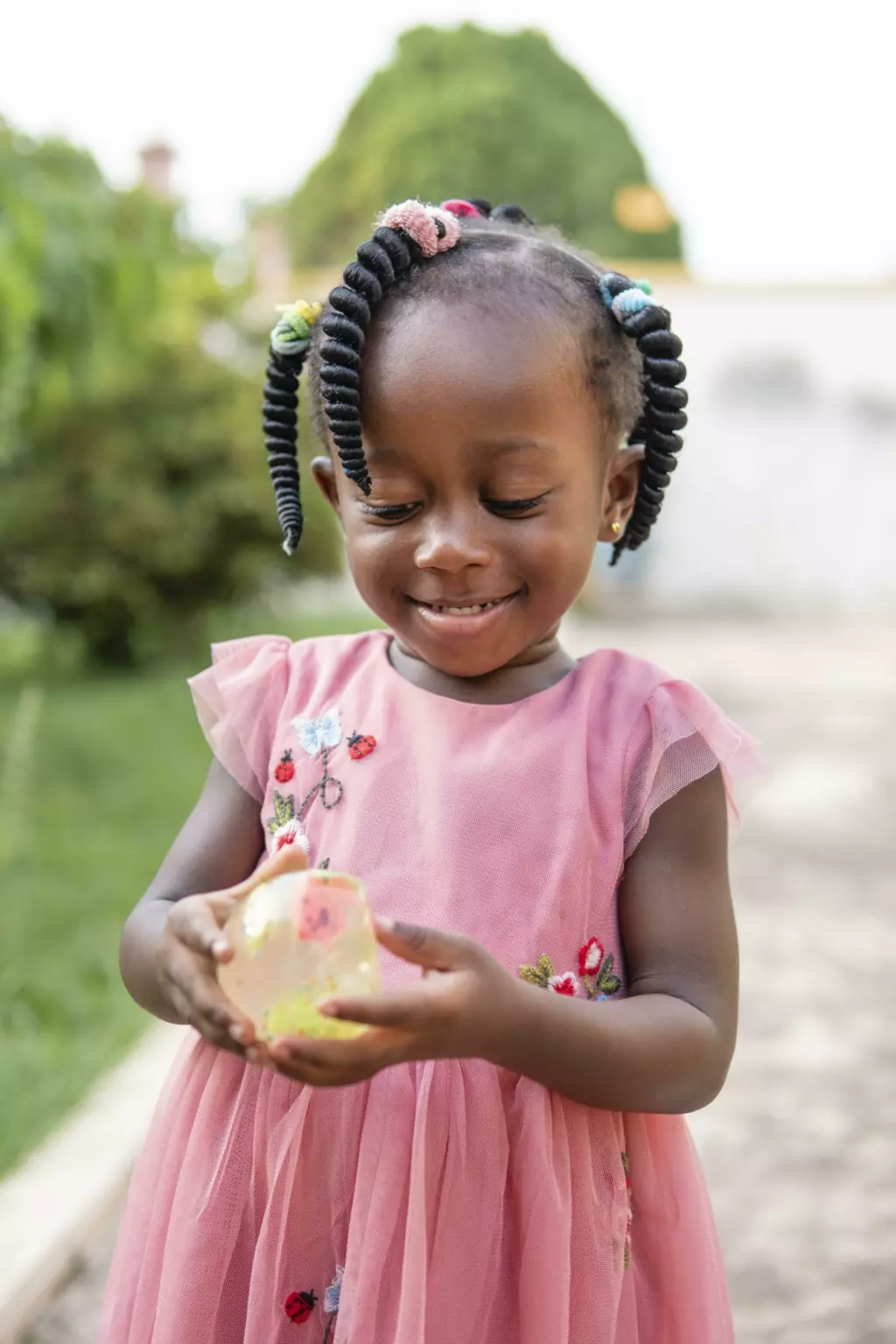
The 2024 Tanzania national Violence Against Children and Youth Survey (VACS), the second of its kind following the groundbreaking 2009 VACS, revealed significant reductions in violence: sexual violence against girls decreased from 33% in 2009 to 11% in 2024, and sexual violence against boys dropped from 21% to 5% [1]. While these declines indicate remarkable progress, they also show that childhood sexual violence remains a critical issue in Tanzania, with many incidents going unreported due to cultural taboos.
Parenting support and education and life skills related to childhood sexual violence are two globally-recommended, evidence-based strategies for reducing childhood sexual abuse [2]. Digital games are emerging as effective tools for promoting healthy behaviors among children and may offer a child-friendly, engaging way to initiate conversations about safety and abuse prevention [3].
HappyToto, meaning “Happy Child” in Swahili, is a mobile-based digital game developed for Tanzanian children aged 3 to 5, before they are entirely verbal or can comprehend complex topics like abuse [3]. The game serves as an age-appropriate entry point for educating children and their parents and caregivers about safety and bodily autonomy in a culturally relevant way.
HappyToto is a mobile-based digital game designed to provide culturally sensitive childhood sexual abuse prevention education for children aged 3 to 5 in Tanzania (3). The game was co-created with Tanzanian parents, caregivers, child development experts, social workers, psychologists, and teachers to ensure it reflects the lived realities and values of the target community.
Aligned with evidence-based guidelines, which recommend limiting screen time for children aged 2–5 to no more than one hour per day of high-quality content [4], HappyToto is designed to deliver impactful messaging within those limits.
At the heart of HappyToto is a collaborative philosophy: keeping children safe requires solutions supporting children and their caregivers. While some parents rely on schools to deliver safety education, HappyToto fosters stronger parent-child communication by giving both parties the tools to talk openly about body safety and boundaries, topics that are often considered taboo.
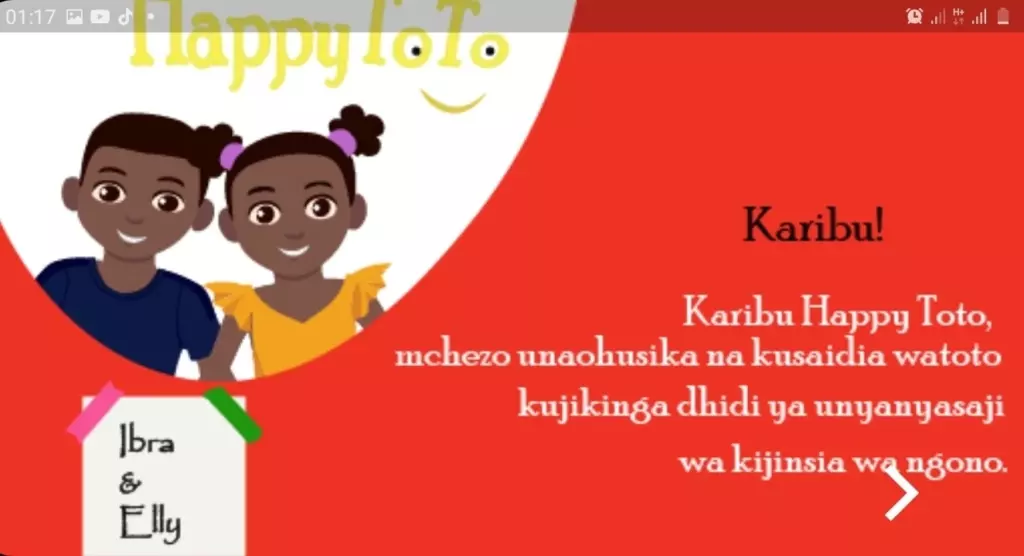
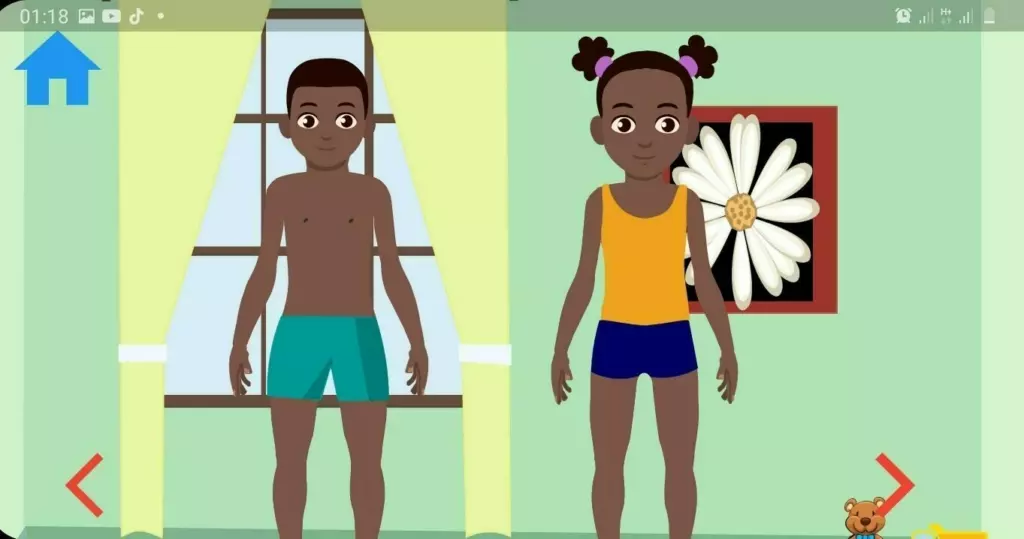
The game features two main cartoon-style characters, Ibra (a boy) and Elly (a girl), designed to reflect typical Tanzanian children. Additional characters include a mother (heard but not seen), a guest, and a stranger, all helping to model real-life safety scenarios.
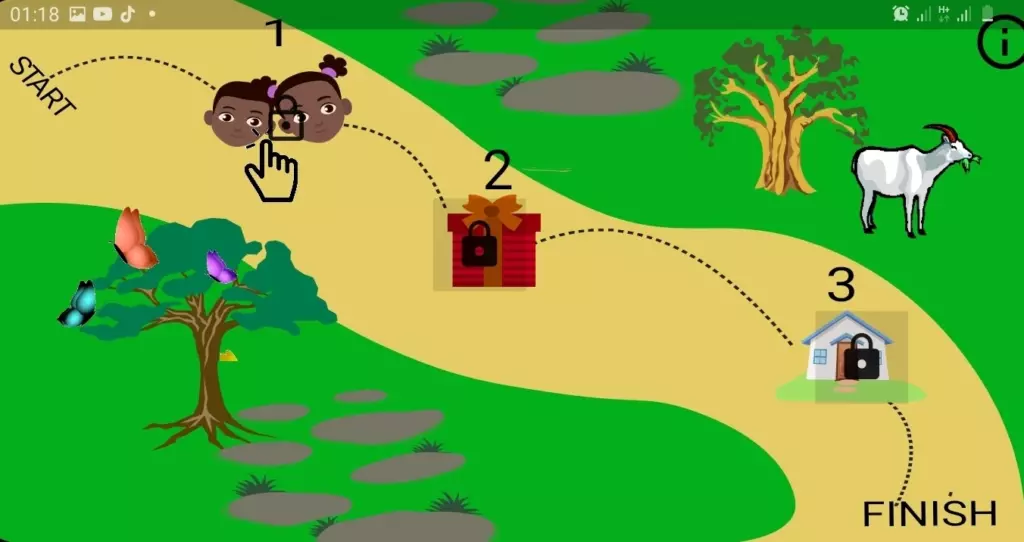
The game uses interactive storytelling and age-appropriate activities to help young children recognize unsafe behavior, understand personal boundaries, and learn how to seek help. By offering short, high-quality learning experiences, it aligns with international guidelines for early childhood screen time.
Leveraging digital technology, HappyToto makes age-appropriate sexual violence prevention messaging accessible in an engaging, child-friendly format. Within a safe virtual environment, children are guided through decision-making and problem-solving exercises that help them practice responding to uncomfortable or dangerous situations, building confidence and laying the foundation for lifelong safety skills.
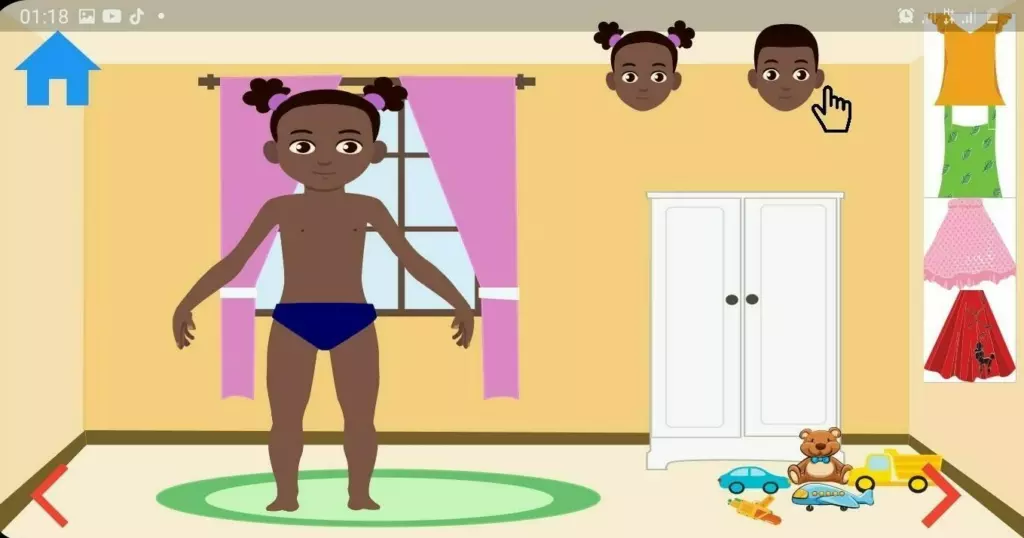
HappyToto includes three progressive levels with 15 themed screens covering topics such as private parts, safe touch, recognizing unsafe behavior, and identifying trusted adults.
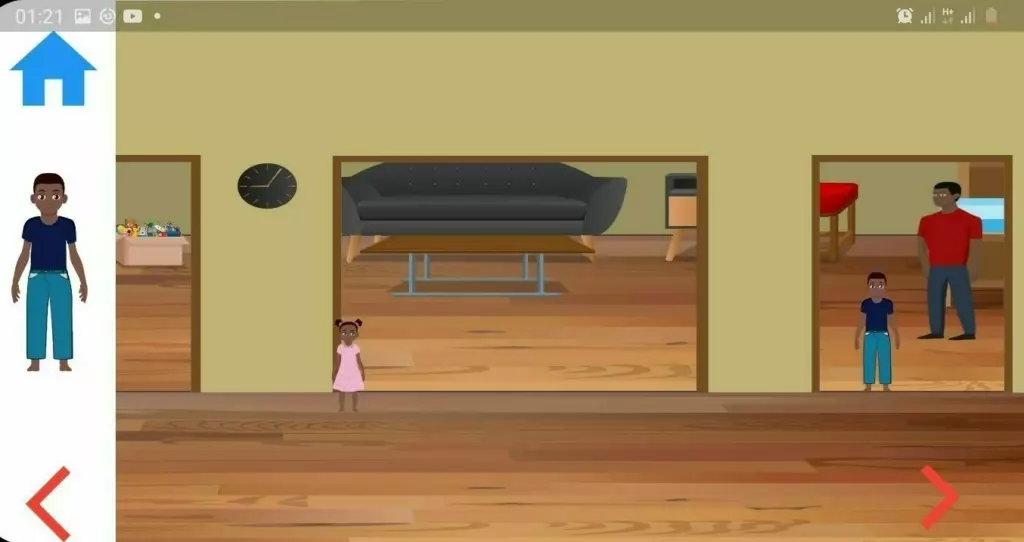
HappyToto was evaluated in two phases between March and April 2020.
Phase 1 was a needs assessment in Dar es Salaam, Morogoro, and other regions conducted through surveys and focus group discussions with parents and caregivers to inform culturally appropriate game development. Phase 2 (Arusha) was a formative evaluation to assess the game's usability, cultural acceptability, and potential to support conversations about childhood sexual abuse prevention.
A total of 32 parents of 3- to 5-year-olds and five children aged 3 to 5 (two girls, three boys) tested the mobile app game. They then completed age-appropriate assessments. These assessments measured (i) their enjoyment of the game, (ii) pre- and post-program confidence, and (iii) ability to discuss ‘child sexual abuse’ prevention education. The evaluation process also looked into game usability and cultural acceptability.
The evaluation found HappyToto to be culturally appropriate, engaging, and promising as a learning tool. However, it remains a prototype and is not yet available for public use. Further testing is needed to determine its long-term impact, as there is no current evidence of effectiveness over time.
After engaging with the game, parents' confidence in discussing childhood sexual abuse prevention topics with their children improved significantly, from 3.56 (neutral) to 4.9 (confident) out of 10.
Parents reported a notable increase in their ability to converse effectively about childhood sexual abuse prevention, with ability scores rising from 5.67 to 8.8 out of 10.
Children found the game enjoyable and were actively engaged in the learning activities, indicating the game's effectiveness in delivering sensitive content in an age-appropriate manner
*[3]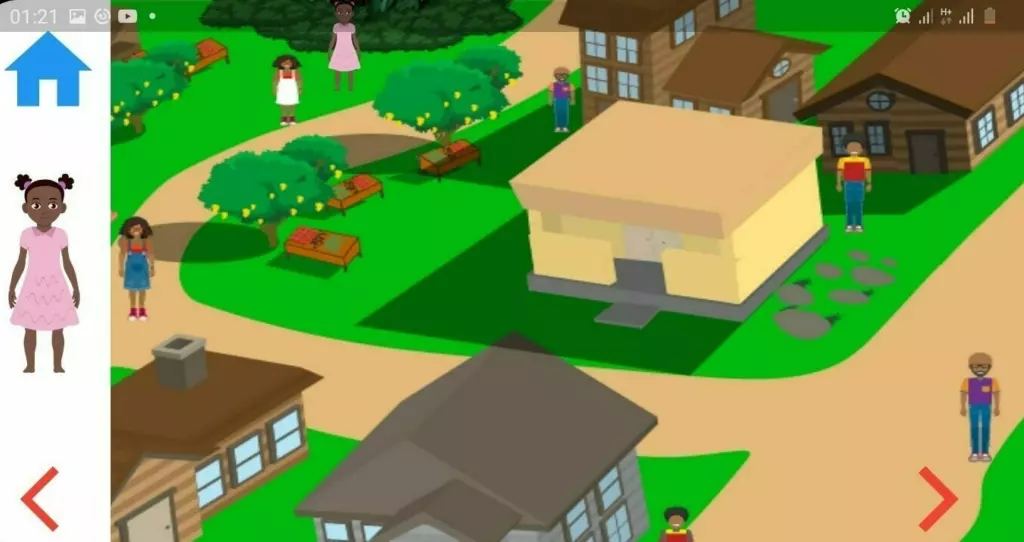
It is available in Swahili and English, aligns with screen time guidelines for young children, and offers a secure, engaging platform for children to build safety skills and awareness.
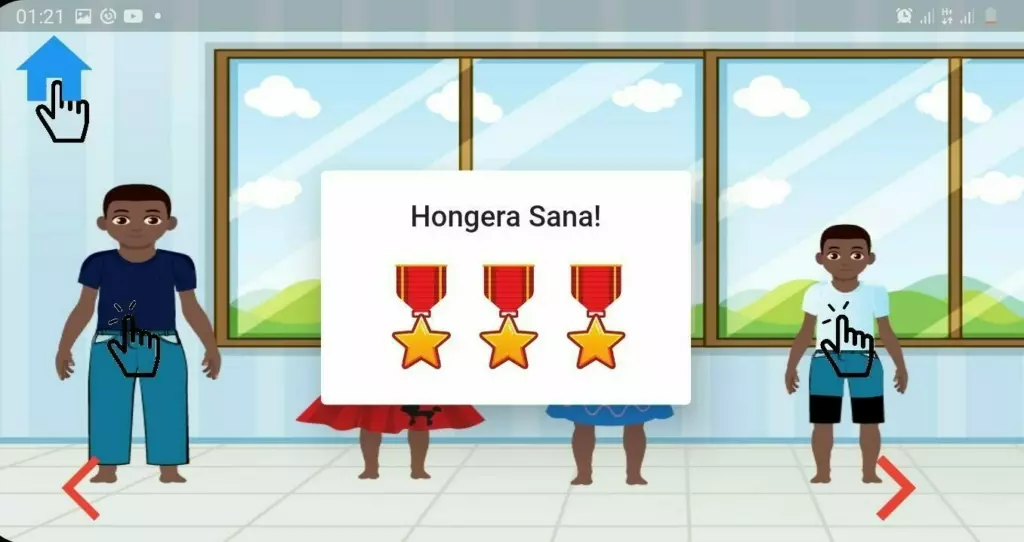
The HappyToto game shows promise as a digital intervention aiming to improve the knowledge and skills of parents and children in child sexual abuse prevention education. HappyToto’s interactive nature demonstrates the potential to shift attitudes and foster awareness among children and adolescents. The prototype evaluation showed that HappyToto provided participating families with the tools to address child sexual abuse proactively.
The game is an excellent example of a culturally tailored intervention, ensuring relevance and effectiveness within the Tanzanian context. By facilitating open conversations about childhood sexual abuse prevention in Tanzanian households it has helped to empower both parents and children with essential knowledge. However, more evidence is needed to show the long-term effects and impact on sexual violence [3].
Challenges:
Lessons learned:
Clarification on legal framework
There is no specific provision in Tanzanian law that prohibits children from accessing mobile-based educational programmes such as Happy Toto. Existing legislation, including the Cybercrime Act 2015, the Law of the Child Act 2009 (as amended in 2024), and the Electronic and Postal Communications Act 2010, provides general protections for children online and offline, but does not set a legal minimum age for mobile phone use [5, 6, 7].
Happy Toto is understood to align with national frameworks, and continued engagement with relevant authorities is encouraged to ensure compliance.
[1] Ministry of Community Development, Gender, Women, Children and Special Groups. (2025, June 9). The Tanzania violence against children and youth survey results announcements. Press conference [Press release].
[2] World Health Organization. (2016). INSPIRE: Seven Strategies to End Violence Against Children.
[3] Malamsha, M.P., Sauli, E., & Luhanga, E.T. (2021). Development and Validation of a Mobile Game for Culturally Sensitive Child Sexual Abuse Prevention Education in Tanzania: Mixed Methods Study. JMIR Serious Games, 9(4). doi: 10.2196/30350
[4] Mayo Clinic. Screen time and children: How to guide your child - Mayo Clinic. (2024).
[6] United Republic of Tanzania. (2015). Cybercrimes Act, 2015 (Act No. 14 of 2015). United Republic of Tanzania. (2010). Electronic and Postal Communications Act (EPOCA), Cap. 306, Act No. 3 of 2010 (Revised Edition 2022).
Special thanks to Dr. Edith Luhanga for co-developing this case study.
For more information on this case study, you can reach out to Dr. Edith Luhanga [email protected].